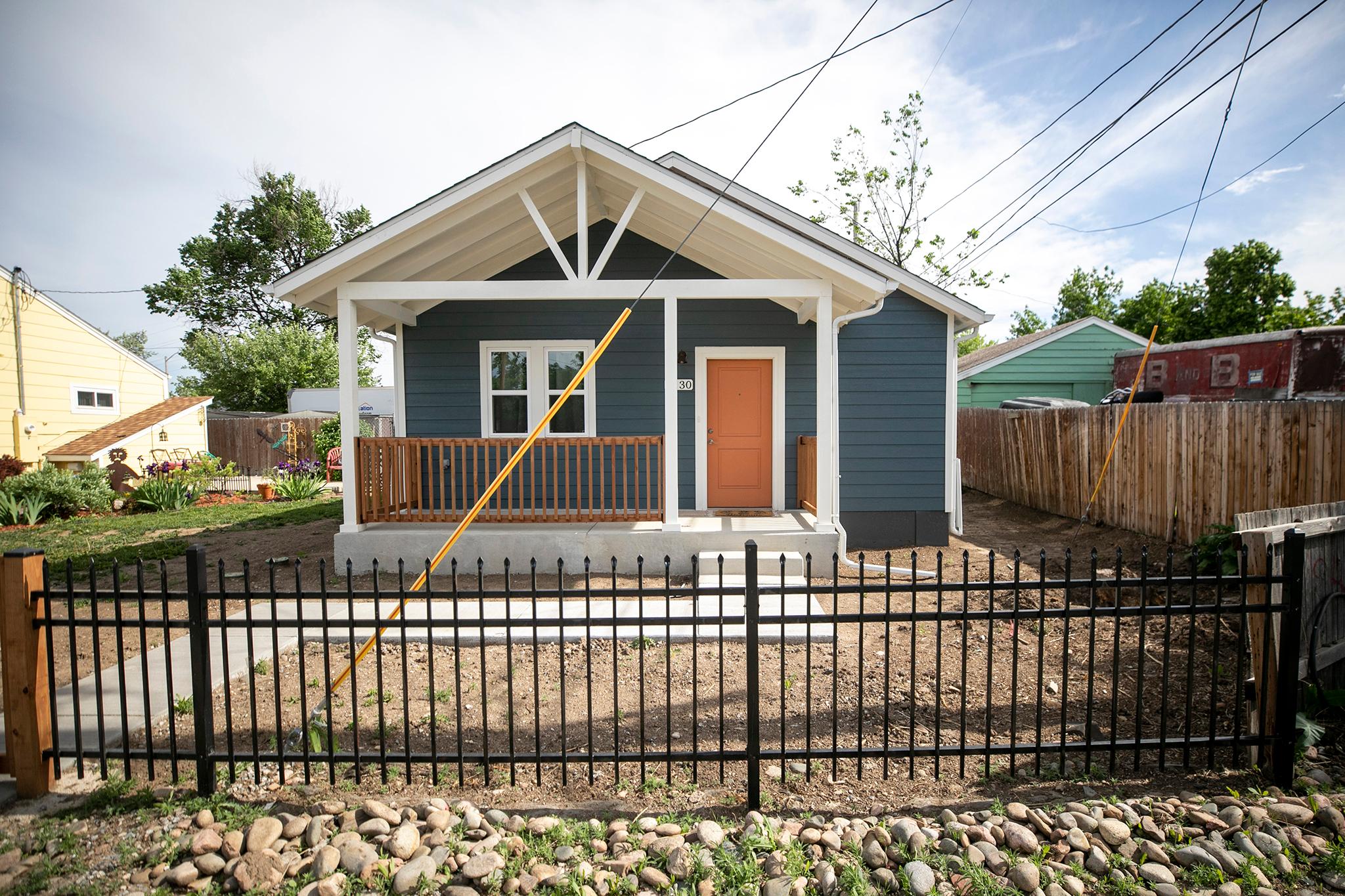Denver elected officials agreed Monday night to make it easier to build accessory dwelling units across the city.
The relaxed rules are in response to a new state law. Colorado lawmakers are forcing cities to allow more of the units, also known as ADUs. It’s supposed to encourage more housing construction to ease the state’s shortage.
But the city still isn’t meeting all of Colorado’s new requirements. City officials have ignored one of the new rules about where exactly ADUs can be built — setting up a potential conflict next year.
Some council members worried that their decision could come back to bite them, and one asked whether the city should consider suing the state.
“If the state says too bad, so sad … what's our penalty?” Councilmember Paul Kashmann asked.
The big setback is about… setbacks
The requirement in question is about setbacks. In other words, how far away from the property line should an ADU be?
The new state law says that ADUs should be allowed pretty close to the edge of a property.
Cities can require a five-foot buffer between the ADU and the property line — but no more than that. The idea is to make it easier to find a place to put a detached unit on any given lot.
But Denver’s requirements for ADUs are still stricter than that. In some parts of the city — especially more suburban areas — a single-story ADU must be at least 10 feet from the property line. For a two-story ADU, it’s 20 feet.
Councilmember Darrell Watson said that the city decided to keep those bigger buffers based on years of research and community input.
“We found that in these differing neighborhoods, especially ones that don't have alleys, that larger setbacks are required. Because if you can imagine — an accessory dwelling unit being built right up to the property line, and you can just simply look right over a fence into another neighbor's yard next to you,” Watson said.
The city’s decision creates a problem with the state.
The state law says that cities have to get in line with all of the new requirements, including skinnier setbacks, by June 30, 2025.
City officials are hoping to get an exemption. But state lawmakers aren’t promising to cut Denver a break.
The sponsors of the state law “had many conversations with people across the state about setbacks and everything that went into the bill,” said state Rep. Ron Weinberg, a Republican from Loveland.
Still, he and state Rep. Judy Amabile, a Democrat from Boulder, said they were willing to talk more.
“We’re delighted that they passed the ordinance, and that they’re complying with almost every aspect of the bill, and we’re certainly open to discussions,” Amabile said.
State lawmakers could change the law in their 2025 legislative session, which begins in January.
A lawsuit would raise big questions
Councilmember Kashmann said it’s important that Denver gets an exemption, even if it might mean a lawsuit.
“If the state doesn't give us relief in this or any other areas, is there a way to preemptively take the matter to court?’ he asked.
If neither side gives up, the matter could end up in court anyway. A property owner could sue the city, asking a judge to strike down Denver’s setback laws.
If that happens, the lawsuit could raise some fundamental questions — and not just about setbacks. The state’s new ADU law was controversial because it gives the state government more power over zoning and development, which is usually a topic for local government.
Cities like Denver could argue that their “home rule” status actually makes them immune from those kinds of state mandates.
“I know of at least three occasions where there was litigation over our home rule authority with the state where [the City of Denver] prevailed very convincingly,” Councilmember Kevin Flynn said.
But he added, “We're working very cooperatively with the Denver delegation [of state lawmakers] to try to address this in a very collaborative fashion.”
They’ve got some time. The new city rules for ADUs don’t kick in until mid-December, and the new state requirements aren’t in effect for another six months after that.













